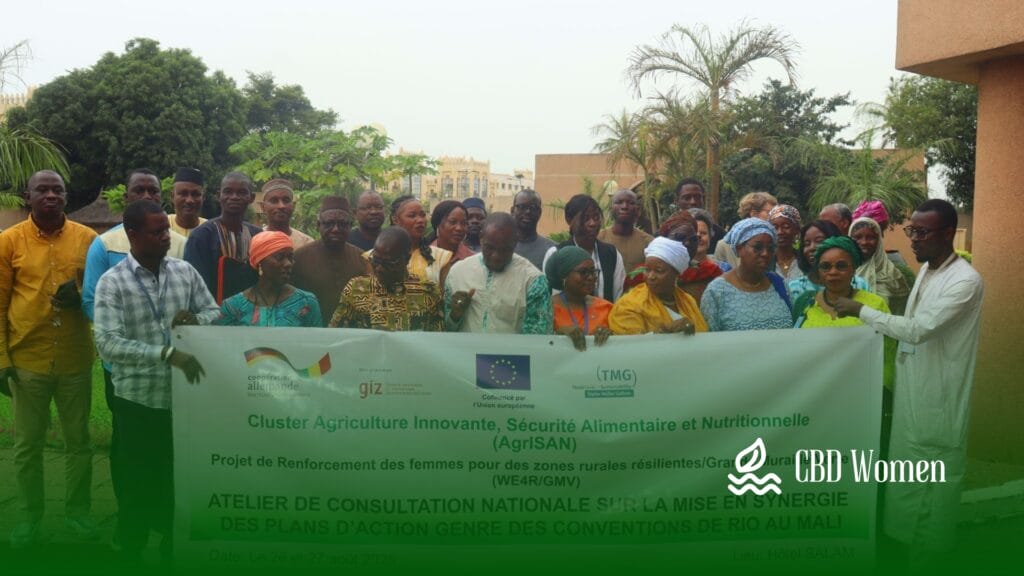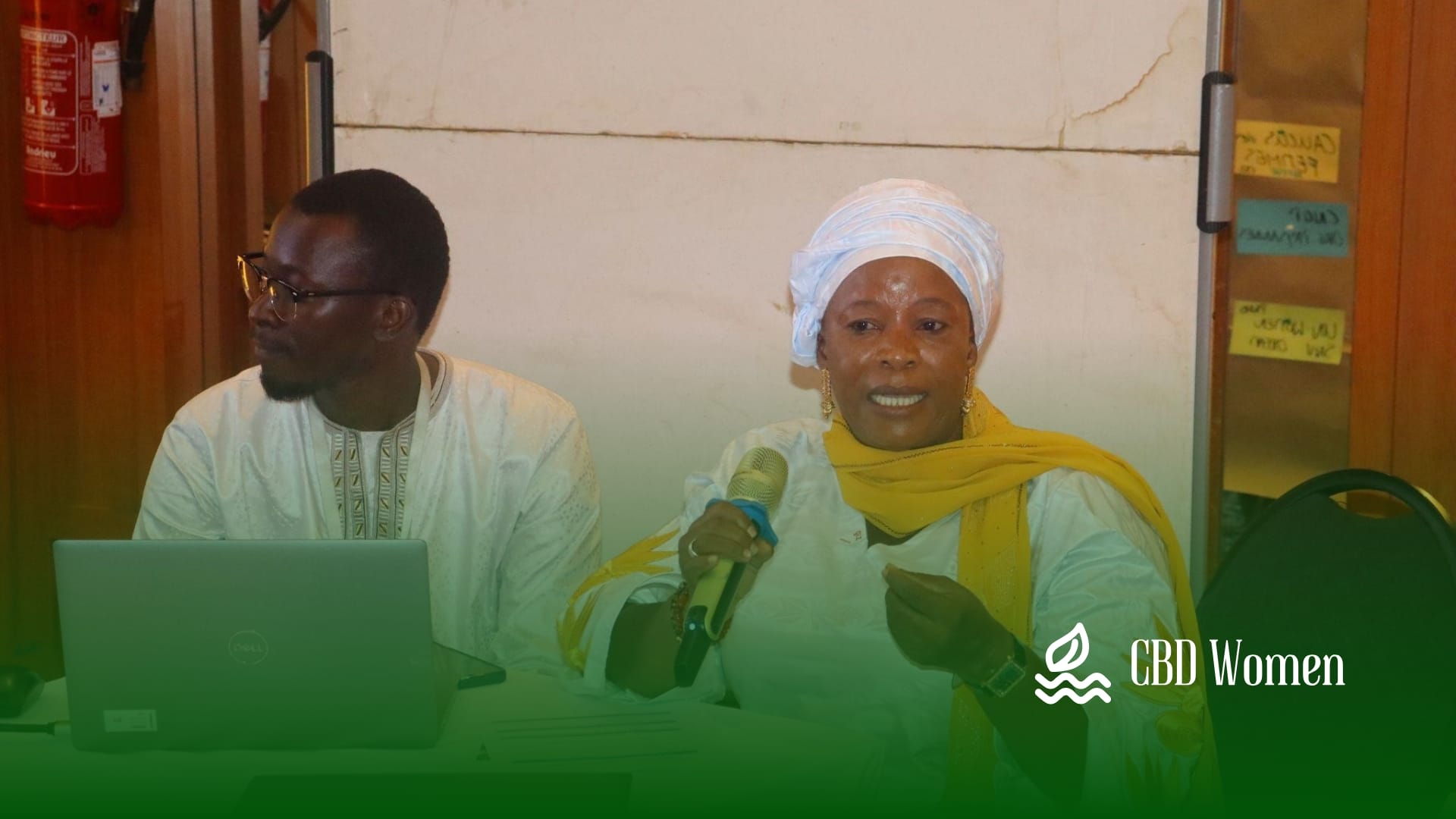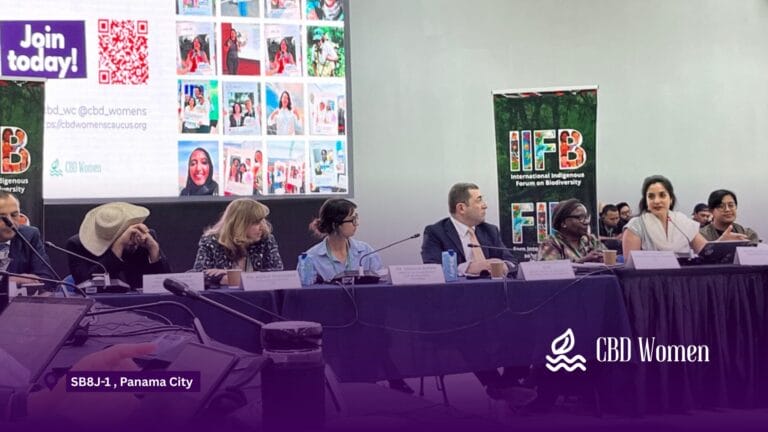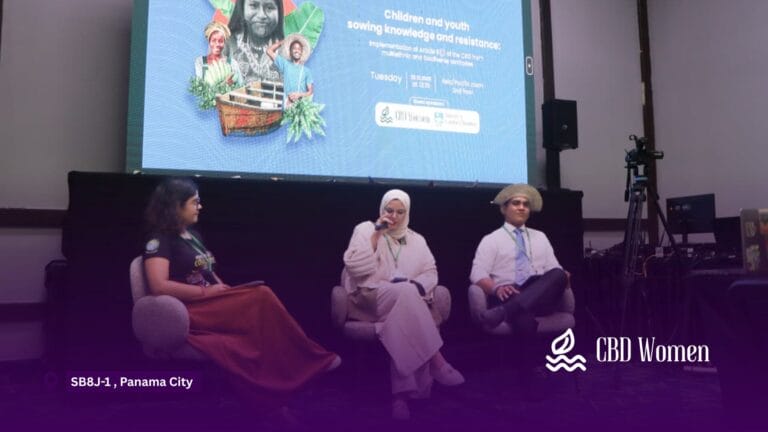By Ms. Fatoumata Goundo Sissoko, President of the Women’s Network for Environmental Rights
Disclaimer: The views expressed in this blog are those of the author and do not necessarily reflect the official position or opinions of the CBD Women’s Caucus
Between 25 and 29 August, the WE4R/GMV project, led by TMG Research , organized the National Consultation Workshop on Synergizing Gender Action Plans of the Rio Conventions in Mali. The workshop provided a platform to explore how gender considerations can be integrated into national restoration and land governance strategies.
About the Workshop
The consultation was built on previous research led by the Think Tank for Sustainability on women’s land rights in connection with the three Rio Conventions. The workshop aimed to identify synergies and opportunities in implementing the Gender Plans of Action (GPAs) from the three conventions, improve national coordination and effectiveness in policy implementation, and align gender-responsive policies with biodiversity conservation and sustainable land governance.

Key Discussions
The CBD Women’s Caucus, represented by Ms. Fatoumata Goundo Sissoko from Mali, actively contributed alongside around thirty participants. These included representatives from government technical services, civil society organizations, farmers’ associations, women’s NGOs, researchers, legal experts, and media.
The workshop featured presentations on global and national analyses of gender plans of action, interactive group sessions, and discussions on advancing women’s rights and girls’ rights through the three Rio Conventions. Special attention was given to integrating land governance indicators into reporting systems and identifying challenges and solutions for effective implementation.
Key Outcomes and Commitments
The consultation concluded with a strong commitment from participants to work in synergy to enhance gender considerations in land governance. By aligning national strategies with the Rio Conventions and Mali’s legal frameworks, including the national gender policy, stakeholders emphasized the importance of inclusive, women-led solutions for sustainable land management, biodiversity conservation, and participatory governance.




